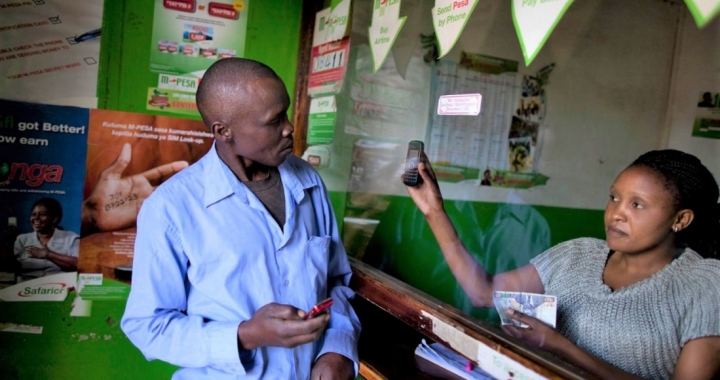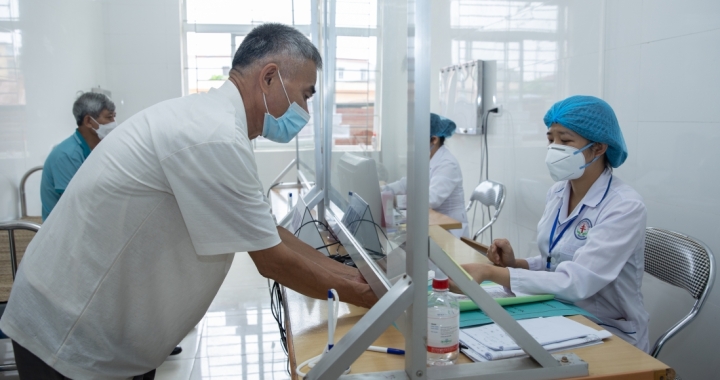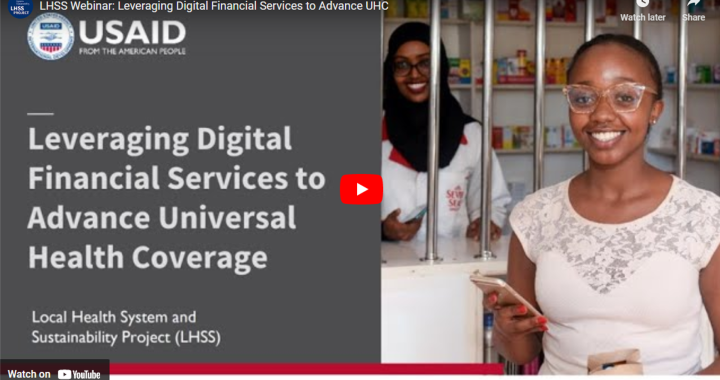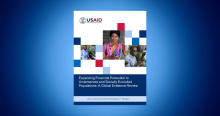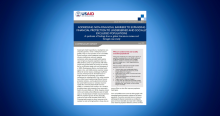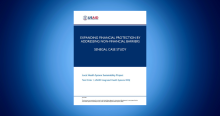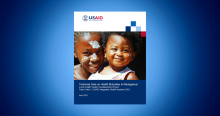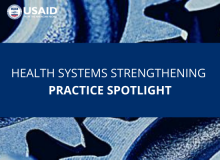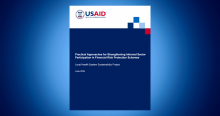Developing and Strengthening Financial Protection Mechanisms
Knowledge Products
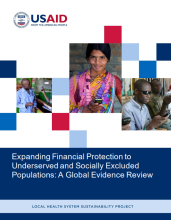
This report provides results and lessons learned from the LHSS Project’s review of existing literature on expanding financial protection to underserved and socially excluded populations in LMICs.
The case study in Senegal focused on practical experiences and lessons learned when expanding financial protection to socially excluded and vulnerable groups.
The case study shows the literature and previous work on health equity to identify promising approaches and strategies from Senegal’s experience to ensure more equitable financial protection, particularly for underserved and socially excluded populations.
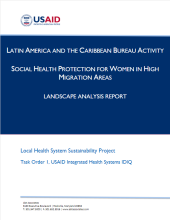
This landscape analysis report on Social Health Protection for Women in High-Migration Contexts provides LHSS-LAC, USAID, national governments, regional stakeholders, and other development partners with an inventory of country experiences and strategies for improving access to social health protection (SHP) for women migrants and women at risk of migration.
The purpose of the assessment, conducted in 2021 by Two Oceans in Health for the LHSS Latin America and Caribbean Activity, was to understand the Dominican Republic context for expanding social health protection to migrant women.
This technical note will be updated based on the decisions and progress made in implementing CBHI or other health financing mechanisms, other governmental decisions, and the capacity of the CA-CSU and other actors in implementing the SNFS.
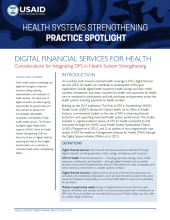
This brief includes a global evidence review of DFS for health conducted by LHSS and an analysis of two programmatic case studies of DFS for health by Management Sciences for Health (MSH) through the Digital Square initiative.
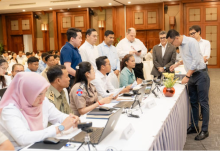
Creating a network with interoperable data management systems holds great potential to revolutionize Cambodia’s entire social safety-net ecosystem, providing improved efficiency for policymakers, implementing organizations, service providers, as well banks that subsidize services.
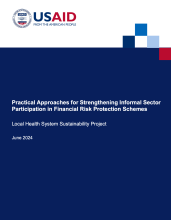
This brief documents successful approaches for achieving and sustaining high enrollment rates in the informal sector, aiming to facilitate replication across other states in Nigeria.




